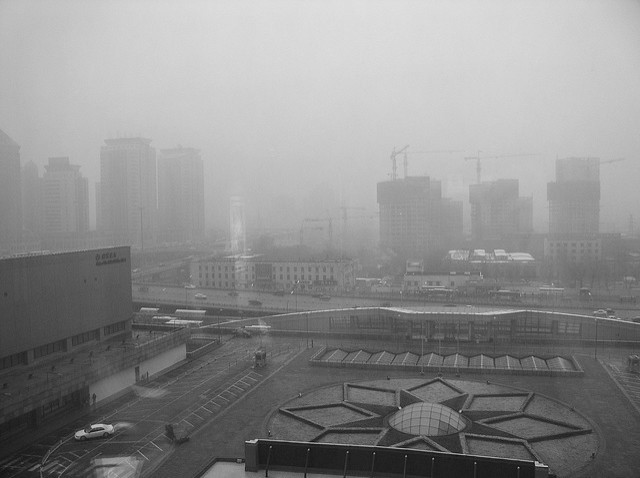UN Warns of Grave Health Consequences from China’s Pollution

The pollution that has accompanied China’s spectacular rate of economic growth will have dire health consequences for its population, the United Nations has warned in a report.
Achim Steiner, Executive Director of the UN Environment Program (UNEP) told media that already hundreds of thousands of Chinese people have suffered respiratory illnesses or died prematurely due to the heavy smog that envelops some cities in the country.
[The Chinese] are paying a price first of all individually by premature deaths. Respiratory diseases and premature deaths in the hundreds of thousands, he said.
China as a society also pays a heavy price in terms of healthcare and lost productivity.
Speaking in Beijing on the eve of preparing a “green economy” report, Steiner suggested the government can enact policies to alleviate pollution, while maintaining its heady economic growth.
He praised Beijing officials for taking some important steps, citing, among other things, that China is now the world’s largest investor in renewable energy – spending $49 billion in 2010.
The UNEP report, which will be called ‘Towards a Greener Future,’ proposed that in exchange for an investment equal to 2 percent of global GDP, the nations of the world would be able create sustainable and environmentally-safe economies.
Ironically, BBC reported that on the day Steiner appeared in Beijing, the city’s air was dangerously polluted -- the U.S. embassy described the pollution as hazardous.”
A few weeks ago, a study by the Chinese government revealed that 10 percent of the nation’s farmlands contain excessive levels of heavy metals such as lead, mercury and cadmium. Reportedly, the researchers claimed that the pollution was caused by contaminated water and poisonous waste seeping into the soil.
Heavy metal pollution incidents have occurred repeatedly in recent years, Wan Bentai, chief engineer at the Ministry of Environmental Protection, told the Southern Metropolis Daily newspaper.
From January to August alone there were 11 incidents, nine involving lead.”
Exposure to heavy metals can lead to damage in nerves, reproductive systems and kidneys, and cause other health complications, particularly in children.
In February of this year, China’s Environment Minister Zhou Shengxian warned that pollution could eventually threaten China's economic growth.
In China's thousands of years of civilization, the conflict between humanity and nature has never been as serious as it is today, Zhou wrote in an essay.
The depletion, deterioration and exhaustion of resources and the deterioration of the environment have become serious bottlenecks constraining economic and social development.
© Copyright IBTimes 2025. All rights reserved.





















